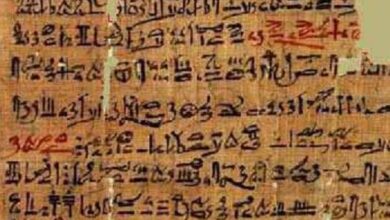Elegy
Elegy is one of the most authentic types of poetic composition and, since Greece, it has been explored by poets.
Initially being more associated with form than content, today the word elegy means, for us, a lament song, a sad composition.
According to its theme, it can be classified into:
- martial or heroic;
- amorous or erotic;
- moral or philosophical;
- gnomish or moralist;
- funeral;
- religious.
The Elegy consists of a melancholy, sad or complacent poetry, being used mainly in texts of mourning for death, in lyrics for funerals and in other situations that lead to the feeling of intense sadness, regret and nostalgia. Great Latin and Greek poets also used Elegy as a way of approaching pleasant themes or ones that required deep reflection.
The Houaiss dictionary gives us three definitions of elegy:
- literature.
poem composed of alternating hexameter and pentameter verses. - literature.
lyric poem by tom ger. tender and sad. - music.
lament song; baby.
Evolution in the sense of the word elegy
As we said, elegy, for the Greeks, referred to the form of a poem; indeed, it was customary among the Greeks to classify poems primarily by form.
When compared with the epic , which featured a fixed number of feet in its verses, the elegy differed by alternating hexameters and pentameters.
The elegy was commonly recited in public places, most often by the author who composed it, and was usually accompanied by a single musical instrument (the most common was the flute).
Although it has been the elegiac couplet used in verses of the most different genres, since antiquity there has been a strong association between them and mourning events, and they were often used for funeral chants and death laments.
Types
According to its theme, the elegy can be classified into:
- martial, warrior or heroic , if it addresses martial themes and warrior heroism;
- amorous or erotic , if it deals with love, suffering in love and similar subjects;
- moral or philosophical , if you make a philosophical or moral reflection;
- gnomish or moralist , when it inspires the moral elevation of man;
- funerary , when it boils down to a death wail or a dirge;
- religious , when it addresses themes related to religion.
Characteristics of Elegy
As elegy belongs to the lyrical genre , the first characteristic that we highlight in it is subjectivity .
The elegy, therefore, is not intended to narrate objective facts, but to express feelings, emotions and thoughts experienced by the lyrical self .
Secondly, we highlight the very strong sentimental appeal that is almost always present in the elegy, a quality resulting from the themes addressed, which often involve death, loss and pain.
Finally, we mention the main characteristic of the elegy: it is a melancholic composition, which addresses sad thoughts and feelings .
The elegy is the poetic composition par excellence intended for weeping, lamentation and funeral events.
Writers
- Archilochus (680 BC-645 BC) — Greek.
- Simonides (556 BC-468 BC) — Greek.
- Catullus (84 BC-54 BC) — Roman.
- Tibulo (54 BC-19 BC) — Roman.
- Propertius (43 BC-AD 17) — Roman.
- Ovid (43 BC-18 AD) — Roman.
- Petrarch (1304-1374) — Italian.
- Giacomo Leopardi (1798-1837) — Italian.
- François Villon (1431-1463) — French.
- Pierre de Ronsard (1524-1585) — French.
- Alphonse de Lamartine (1790-1869) — French.
- Paul Verlaine (1844-1896) — French.
- John Milton (1608-1674) — Englishman.
- Shelley (1792-1822) — English.
- Rainer Maria Rilke (1875-1926) — Czech.
- Goethe (1749-1832) — German.
- Jorge Manrique (1440-1479) — Spaniard.
- Garcilaso de la Vega (1503-1536) — Spaniard.
- Federico García Lorca (1898-1936) — Spaniard.
- Jorge Luis Borges (1899-1986) — Argentinian.
- Octavio Paz (1914-1998) — Mexican.
- Pablo Neruda (1904-1973) — Chilean.
- Sá de Miranda (1481-1558) — Portuguese.
- Luís de Camões (1524-1580) — Portuguese.
- Manuel du Bocage (1765-1805) — Portuguese.
- Fernando Pessoa (1888-1935) — Portuguese.
- Fagundes Varela (1841-1875) — Brazilian.
- Cecília Meireles (1901-1964) — Brazilian.
- Vinicius de Moraes (1913-1980) — Brazilian.

